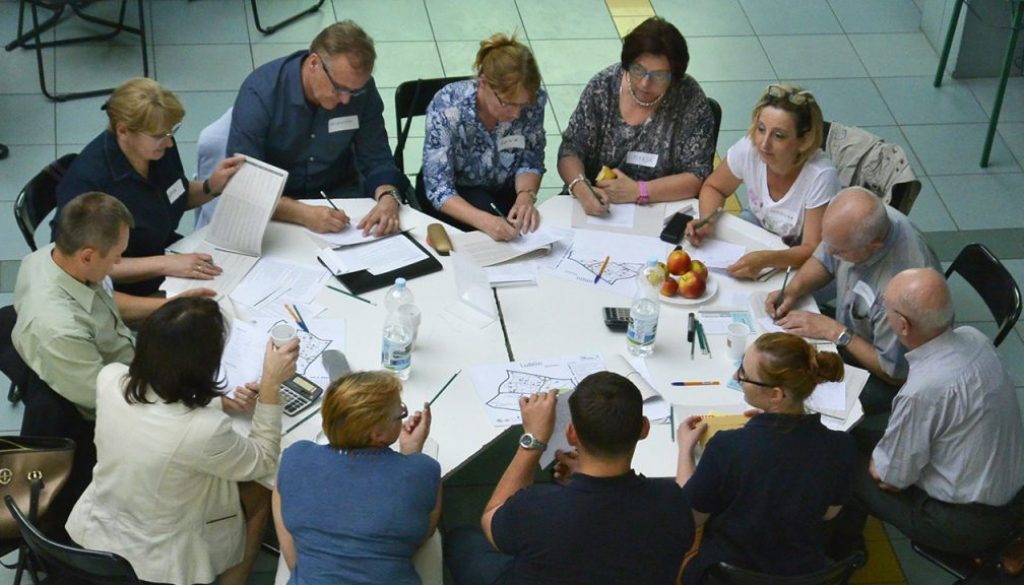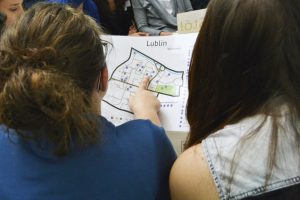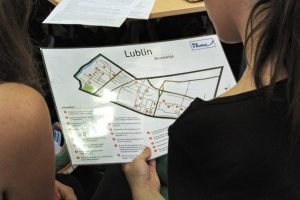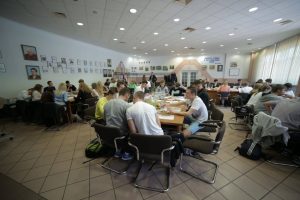
The Budget Game was created as a part of the “Budget Game. Activation of Lublin and Świdnik Citizens in the Field of Participatory Budgeting” project that promotes citizen participation in the process of deciding on the city budget. The project was realized between 2014 and 2016. It was implemented by the Centre for Systems Solutions, in partnership with the Municipality of Lublin, the Association of Polish Cities, Municipality of Świdnik, and Icelandic Citizens Foundation, as a part of the “Citizens for Democracy” programme, financed by the European Economic Area Funds. The main part of this project was a simulation game inspired by „Budget Games” created by Innovation Games® to help citizens and local authorities of the city of San Jose, California (USA) to pursue discussions around city budgeting. The game was then adapted to the Polish reality to increase the sense of co-responsibility concerning city finances for the citizens of Lublin, Świdnik, Wrocław, and Częstochowa, Poland.
During the game, players are divided into teams of 10. There are 8-10 such groups. Each group has to unanimously decide on urban investments and social services selection. Each participant has a certain amount of money (the game’s own fictional currency), but not enough to finance the projects they prefer.
The players will therefore need to work together to reach common solutions. Each team creates its own list of proposals. But the final ranking depends on the average from all tables.
The game teaches not only cooperation but also helps to understand that decisions on public issues stem from the needs of different groups of citizens and that finding the best solution is time-consuming and requires flexibility. If the players are not able to communicate, they won’t be able to convince other players to fund projects that are important for them. The principle of the game is a positive collaboration process, where all involved participants are equal partners.
Every game is moderated by two professional facilitators and there are trained moderators for each table. Over the course of the game, the representatives of urban institutions are available as experts in their respective fields (such as the police, communication issues, water & sewer, parks & recreation, etc.). The presence of the experts helps the players to better understand the budgeting mechanisms and constraints related to managing complex urban organisms.
The game offers a safe environment in which you can make mistakes without taking their consequences. Because of its interactive and involving nature, the game is seen as something that is happening for real. It allows players to internalize more information, learn faster and gain the ability to intuitively make good decisions.
But the Budget Game is not only a fascinating simulation with high potential – it’s also full of emotions and human interactions.
After the game, even skeptical-minded citizens begin to understand that they are entitled to vote on municipal budget matters and that they should benefit from public spending, but it also means that they have to share responsibility for city finances. The authorities also see that the involvement of residents leads to reasonable solutions, and residents take ownership of them. In San Jose, 80% of recommendations were implemented in the real budget.












